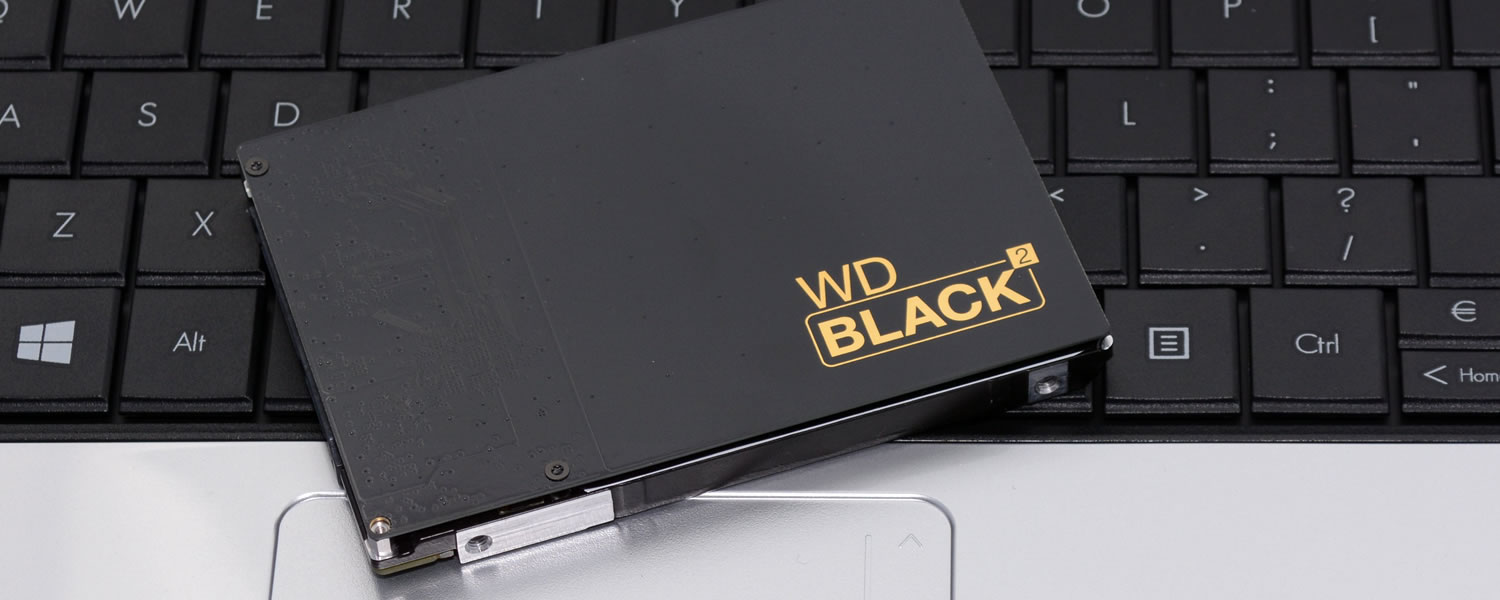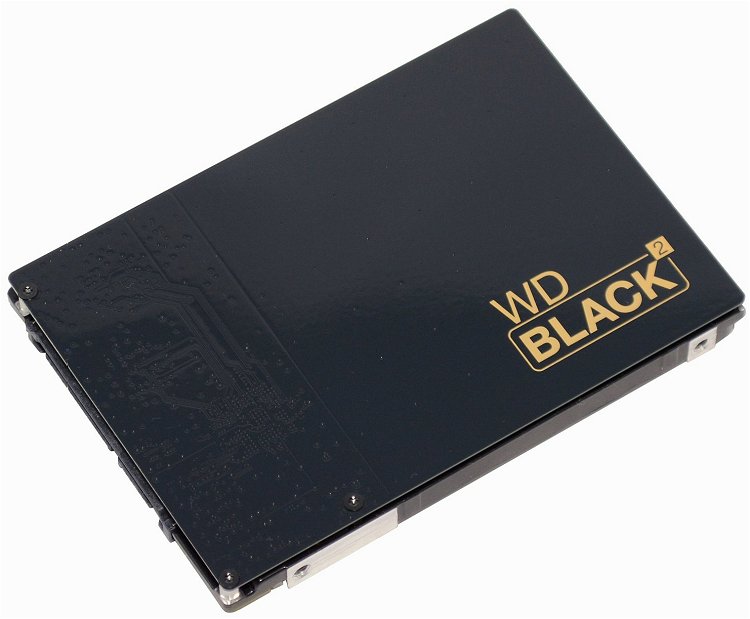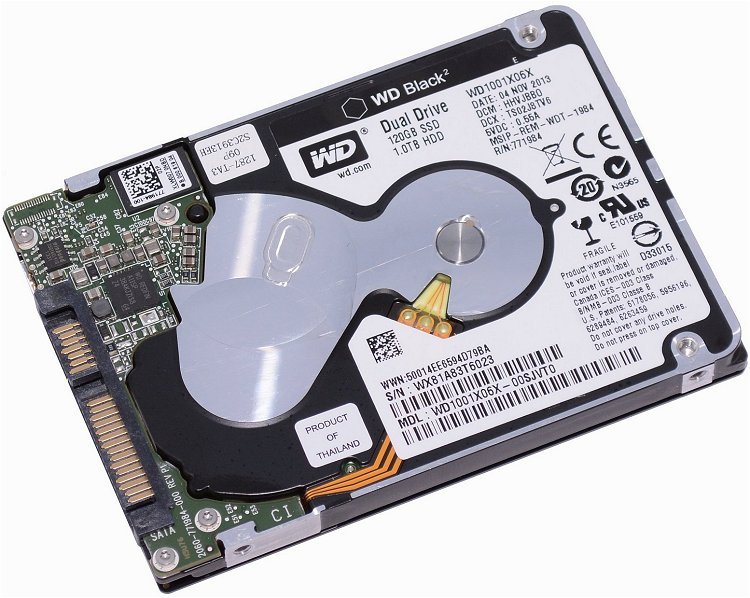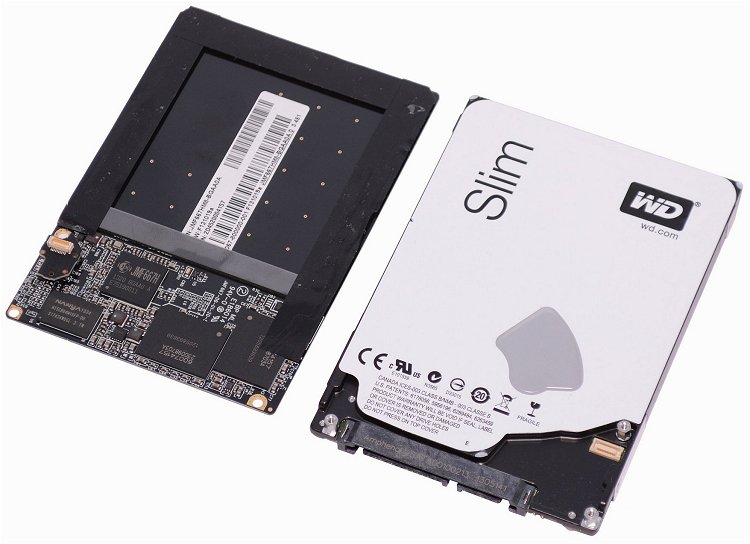It's no secret that hard drives – with or without RAID – have long been the weakest link of an enthusiast PC but until somewhat recently flash-based alternatives weren't affordable enough for the masses. In 2009, SSDs including OCZ's original Vertex were fetching $3.00 per gigabyte or about $350 for a 120GB model, quite a bit more than a 2TB hard drive at the time, which were going for as little as $0.06 per gigabyte.
Prices have dropped significantly since then, with high-end SSDs such as the Samsung SSD 840 Evo costing as little as $0.75 per gigabyte for a 120GB version. That's still a serious premium over a disk drive such as the Western Digital Black 3TB, which only costs $0.06 per gigabyte, while 2.5" laptop drives such as the WD Blue 1TB can be had for $0.09 a gig. This discrepancy can make it hard to balance speed and space.
Granted, the price gap isn't as extreme as it once was, but many folks are still stuck with the limitations of one technology or the other. Laptop users, for instance, are often forced to pick between a snappier experience with less storage or a slower one with more. About $100 can buy a 120GB SSD or a 1TB HDD, but we're still dreaming about flash drives that match the price and capacity of conventional storage.
In the meantime, WD has come up with a solution for laptop users who have a single 2.5" bay (which is the vast majority of them). The company has developed a notebook drive that sports both a 120GB SSD and a 1TB HDD, though it's not a standard hybrid configuration such as Seagate's Momentus XT drives, which combine ample magnetic storage with a little NAND memory to cache frequently used data.
Those types of setups are a definite improvement over conventional HDDs, but they are considerably slower at most tasks than a full-blown SSD. The Black2 crams both technologies into one drive too, but it simply does what desktop users have been doing for years by making the flash portion a primary boot drive with the disks serving as bulk storage. The difference is that the Black2 only uses a single slot.
At $300, it works out to be $0.27 per gigabyte when you account for the full 1.2TB capacity, or less than half the price of a Samsung SSD 840 Evo 120GB and not that much more than the $0.09 per gigabyte you pay for a standard 1TB 2.5" drive when you consider there is a 120GB SSD in the package. As always, we're here to find out what the heck that quarter per gigabyte buys you performance-wise.
WD Black2 Hybrid HDD in Detail
In terms of dimensions, the WD Black2 looks like any other 2.5" drive, measuring 100.20 x 69.85 x 9.50mm and weighing just 125g. However, its aesthetics vary in that it isn't fully enclosed in steel or aluminum. Instead, it has a thin PCB on the underside, part of which features the 120GB SSD.
When operating, WD says the Black2 consumes just 1.8W and 0.9W when idling or asleep. Because it's not just an SSD, the drive can only handle 30Gs or 350Gs of shock when non-operational, whereas SSDs can safely handle up to 1500Gs as they don't have moving parts.
Squeezing an SSD and HDD into one tiny package isn't easy and as a consequence, the drive is 9.5mm thick while most 2.5" drives are now just 7mm.
On the underneath side of the Black2 we find what looks more like a traditional hard drive with a small PCB attached to the housing featuring a pair of 500GB platters. This PCB has a Marvell SATA bridge chip to let the single SATA interface communicate to both the SSD and HDD through the same partition mapping.
We found the SSD portion of the drive after removing its top layer, which is secured using four small screws and plenty of double-sided tape. WD outfitted the Black2 with a JMicron 667H controller, two 64GB MLC NAND chips and a Nanya DRAM cache chip.
The controller choice is interesting as JMicron doesn't have the best reputation. Although it's been a while since we tested an SSD using one of the company's controllers and we don't have any experience with this specific part, all previous JMicron controllers have been lackluster.
As you would expect, the JMicron 667H supports SATA 6Gb/s, allowing for a read throughput of 350MB/s and a write speed of 140MB/s. Both figures are quite low for a modern SSD as Samsung's Evo 120GB boasts read and write rates of 540MB/s and 410MB/s.
The HDD also supports SATA 6Gb/s, though it has a maximum transfer speed of 140MB/s with an average latency of 5.5ms.
Since the Black2 is designed primarily for laptops with one 2.5" drive slot, migrating your data from your existing laptop drive to the new one should be streamlined. WD has included a very useful USB to SATA adapter cable for OS cloning that can also be used to turn your old laptop hard drive into a portable storage device.
The company also threw in what looks like a USB thumb drive, but it's not a storage device at all. Surprisingly, the "device" simply launches your default browser and sends it to the WD download site for the latest driver and cloning software.







